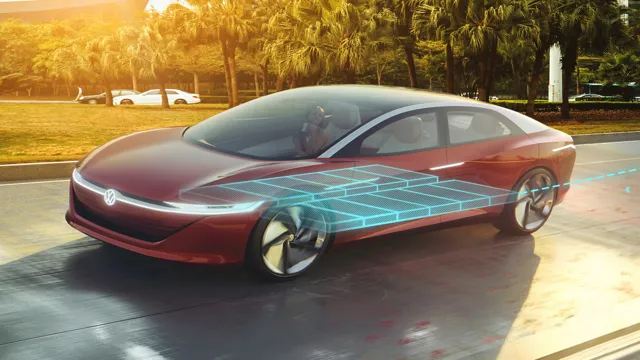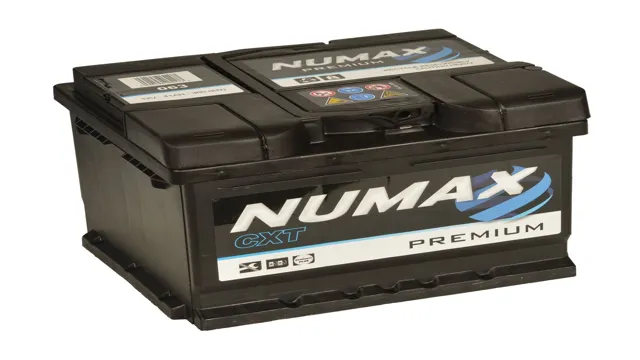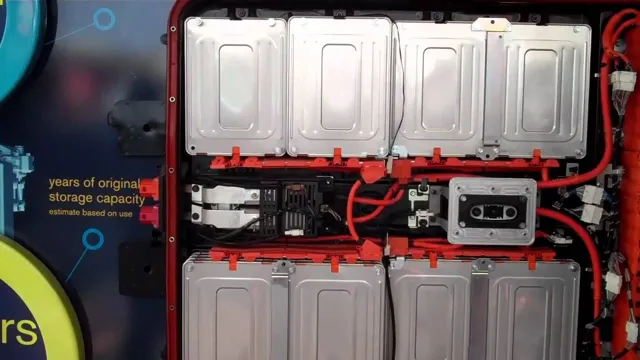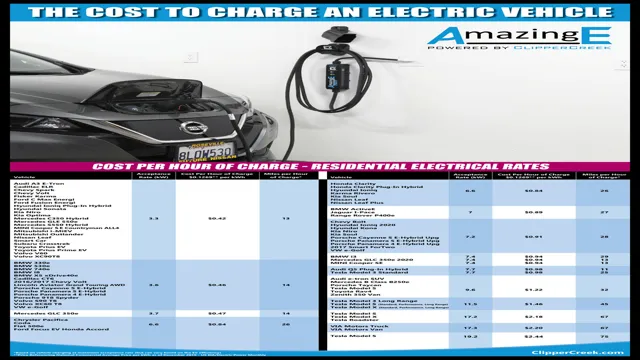Revolutionizing the Future of Driving: The Power of Electric Cars with Solid State Batteries
Have you ever wondered what the future of cars might look like? With the introduction of Electric Cars, it’s safe to say that the auto industry is heading towards a revolutionary change. The introduction of solid-state batteries is making this revolution even more exciting. The days of gasoline-powered cars may be numbered as the shift towards electric cars with solid-state batteries is gaining momentum and changing the game for the better.
Electric cars with solid-state batteries are the talk of the town, and for a good reason. These batteries are a breakthrough in battery technology that are expected to have higher energy density, faster charging, and longer ranges compared to traditional lithium-ion batteries. These batteries are changing the way we think about renewable energy and transportation.
The future is bright for solid-state batteries. These batteries are expected to provide a longer lifespan, lower cost, and higher power density making them an ideal choice for electric vehicles. Solid-state batteries use a solid non-flammable electrolyte and eliminate many of the safety concerns associated with the traditional liquid electrolytes found in lithium-ion batteries.
The future is here, as the auto industry continues to transform rapidly. With the advent of electric cars with solid-state batteries, we are moving towards sustainable transportation, reducing our carbon footprint, and preserving our planet for future generations. As we shift towards a cleaner world, electric cars with solid-state batteries are likely to be at the forefront of the green revolution.
What are Solid State Batteries?
An electric car with a solid state battery is an advanced technology that uses solid electrolytes instead of liquid ones found in traditional lithium-ion batteries. These batteries are made up of thin layers of lithium-based material and feature a high-energy density, making them more powerful and long-lasting compared to standard batteries. Besides, they are safer, as they don’t pose a fire hazard because they don’t contain any flammable liquids.
Plus, solid-state batteries can be charged at a much faster rate and can hold their charge for a longer period than traditional batteries, which means they can improve the driving range of electric cars. However, these batteries are still in the development stage and not widely available in the market yet. But, it’s exciting to see how solid-state battery technology can potentially revolutionize the future of electric vehicles and make them more efficient on the road.
Who knows, maybe in a few years, all electric cars may come equipped with solid-state batteries.
The Science Behind Solid State Batteries
Solid State Batteries
Solid state batteries are a revolutionary technology that could transform the way we use energy. Unlike traditional batteries which use liquid electrolytes, solid state batteries use solid-state materials, such as ceramics, to conduct electrical charges. This results in a more stable and efficient energy storage solution, with the potential for longer lifespan and higher energy density.Solid state batteries are also less prone to leakage and explosion, making them safer for use in cars, electronics and other applications. The development of solid state batteries is still ongoing, but it has the potential to change the future of energy storage, making devices more reliable and sustainable. With time and advancements in technology, solid state batteries could soon replace traditional batteries, opening up a new world of possibilities for energy storage.
Advantages of Solid State Batteries Over Conventional Batteries
Solid state batteries are a relatively new type of battery that provides several advantages over conventional batteries. Unlike conventional batteries, solid state batteries use a solid electrolyte instead of a liquid one, which makes them much safer, as there’s no risk of leakage or combustion. The solid electrolyte also allows them to be more energy-dense, meaning they can store more energy in the same volume as a traditional battery.
This increased energy density means they can last longer, making them ideal for use in electric vehicles or as backup energy sources for buildings or facilities. Furthermore, due to their solid electrolyte, solid state batteries are much more durable and can withstand more charge and discharge cycles, making them a more cost-effective option in the long run. Overall, solid state batteries show great promise as a safer, longer-lasting, and more energy-efficient alternative to traditional batteries.
Electric Cars with Solid State Batteries: Pros and Cons
Electric cars with solid state batteries have been in the works for many years, and they are considered the future of sustainable transportation. Solid state batteries have a higher energy density, making them more efficient and lighter in weight than traditional lithium-ion batteries. They can also operate in a wider range of temperatures and are less prone to overheating and explosions.
Additionally, solid state batteries have a longer lifespan and can withstand more charging cycles, making them more cost-effective in the long run. However, the main drawback of solid state batteries is their high manufacturing costs, which makes them more expensive than traditional batteries. This means that the initial cost of electric cars with solid state batteries may be higher, although this is expected to decrease as technology advances.
Nonetheless, the benefits of solid state batteries are numerous, and they could help to accelerate the transition towards sustainable transportation and the reduction of carbon emissions.
Benefits of Using Solid State Batteries in Electric Cars
Solid state batteries are a promising technology for electric cars that could revolutionize the market. These batteries use solid electrolytes instead of liquid ones, making them safer, smaller, and more efficient than traditional lithium-ion batteries. Some of the benefits of using solid state batteries in electric cars include faster charging times, longer range, and a potentially longer lifespan.
However, there are also some drawbacks to consider, such as the current high cost of production and the still-evolving technology. Additionally, while solid state batteries may offer a smaller size and lighter weight, this could also mean that they may require more frequent replacement. Ultimately, solid state batteries represent an exciting development in the world of electric cars, but as with any new technology, it is important to weigh the pros and cons before making a decision.
Challenges Facing Electric Cars with Solid State Batteries
Electric cars with solid state batteries hold promise for a cleaner and more efficient future, but there are still some challenges to overcome. One major advantage of solid state batteries is their increased energy density, which allows for longer ranges and faster charging. However, these batteries are still in the developmental stage and face challenges such as high production costs and low production volumes.
Moreover, safety concerns related to the use of solid-state lithium-ion batteries also exist. Despite the challenges, many automakers are optimistic about the potential of solid state batteries, and several companies are investing heavily in research to overcome these obstacles. Overall, solid state batteries may offer significant benefits to the electric vehicle industry, but much research and development is still needed to ensure their viability as a practical and cost-effective alternative to traditional battery systems.
Comparison with Conventional Lithium-ion Batteries
When it comes to electric vehicles, one of the biggest challenges is finding a battery that is both powerful and long-lasting. This is where solid-state batteries come in. Compared to conventional lithium-ion batteries, solid-state batteries offer a number of benefits.
For starters, they have higher energy density, which means they can store more energy in a smaller space. They also have faster charging times and are less likely to catch fire. On the downside, solid-state batteries are currently more expensive to produce than lithium-ion batteries.
Additionally, they are not yet widely available and there are still some technical challenges that need to be overcome in order to make them a viable option for electric cars. Despite these challenges, many experts believe that solid-state batteries are the future of electric vehicles, and manufacturers are already hard at work trying to bring them to market.
New Development: Solid State Battery Powered Electric Cars
Electric cars with solid state batteries are becoming a hot topic in the automotive industry. Unlike traditional lithium-ion batteries, solid state batteries use a solid electrolyte rather than a liquid one, which allows for a longer lifespan as well as safer and faster charging. This new development is creating excitement for electric car enthusiasts, as it could potentially increase the range of electric vehicles while reducing charging times.
Additionally, solid state batteries are more environmentally friendly since they’re made with less harmful materials. While the technology is still in its early stages, major car manufacturers such as Toyota and BMW are already investing heavily in its development. This could mean we’ll be seeing more electric cars with solid state batteries on the roads in the near future.
Ultimately, this innovation could revolutionize the way we think about electric vehicles and the future of sustainable transportation.
Current Electric Cars with Solid State Batteries on the Market
Solid State Battery Powered Electric Cars With advancements in technology, car manufacturers are now looking for ways to improve the range and efficiency of electric cars. One of the latest developments is the use of solid state batteries, which have the potential to provide longer range, faster charging times, and increased safety. Currently, there are not many electric cars with solid state batteries on the market due to the high cost of production.
However, major manufacturers such as Toyota, BMW, and Mercedes are developing prototypes and testing these batteries. Toyota plans to launch their solid state battery electric car by 2025, which they claim will have a range exceeding 300 miles on a single charge. The use of solid state batteries could revolutionize the electric car industry and make them more appealing to consumers by addressing some of the major concerns, such as range anxiety and long charging times.
Future Prospects of Solid State Battery Technology in Electric Cars
Solid State Battery Technology, Electric Cars, Future Prospects, New Development Electric cars are gaining traction, and with new developments in solid state battery technology, these vehicles may become even more popular. Solid state batteries are safer, more durable, and have higher energy densities than traditional lithium-ion batteries. They do not use liquid electrolytes, which means they are less likely to catch fire, and they can also be charged faster and hold a charge longer.
As a result, electric cars powered by solid state batteries could have longer ranges, faster charging times, and improved overall performance. However, this technology is still in the research and development phase, and it may be a while before it is widely available. Despite this, the future prospects for solid state battery technology in electric cars are promising, and we may see a significant shift in the electric car industry in the coming years.
Conclusion: Are Electric Cars with Solid State Batteries the Future?
In conclusion, the rise of electric cars with solid state batteries is like swapping out your old flip phone for the latest smartphone. It’s lighter, faster, more efficient, and provides a much better user experience. With the potential to charge faster, travel further, and last longer, these batteries are the future of sustainable transportation.
So, buckle up and get ready to experience the electrifying ride of a lifetime!”
FAQs
What is a solid-state battery in electric cars?
A solid-state battery is a type of battery used in electric cars that uses solid electrolytes instead of liquid electrolytes. This makes them safer, longer-lasting, and more efficient than traditional batteries.
How does a solid-state battery in an electric car compare to a traditional lithium-ion battery?
Solid-state batteries in electric cars have higher energy density, faster charging times, and longer lifetimes than traditional lithium-ion batteries. They are also more resistant to damage and safer due to the lack of flammable liquid electrolytes.
Are there any disadvantages to using a solid-state battery in an electric car?
One of the main disadvantages of using a solid-state battery in an electric car is that they are currently more expensive to produce than traditional lithium-ion batteries. They also require more research and development to improve their performance and cost effectiveness.
When will electric cars with solid-state batteries be available for purchase?
While some electric car manufacturers have made announcements about using solid-state batteries in their vehicles, mass production and availability is not expected until the mid-2020s. However, continued research and development could accelerate this timeline.






